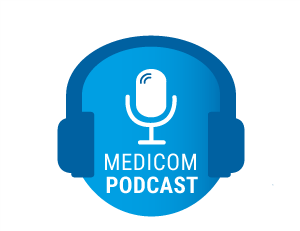https://doi.org/10.55788/6b544d17
“Qiliqiangxin has been used in traditional Chinese medicine for over 1,000 years,” said Dr Xinli Li (First Affiliated Hospital of Nanjing Medical University, China). “This product has been shown to reduce NT-proBNP in patients with chronic HF [1].” According to Dr Li, qiliqiangxin upregulates PPAR-y and its coactivator PGC1-a, which inhibits ventricular remodeling. The current randomised-controlled phase 4 trial, named QUEST (ChiCTR1900021929), hypothesised that qiliqiangxin capsules on top of standard-of-care outperform placebo on top of standard-of-care in terms of cardiovascular outcomes in patients with HFrEF [2]. In total, 3,119 patients were randomised 1:1 to qiliqiangxin or a placebo. The primary outcome was the composite of cardiovascular death and hospitalisation for HF.
After a median of 18.3 months of follow-up, the primary endpoint was met, favouring participants in the qiliqiangxin arm over those in the placebo arm (HR 0.78; 95% CI 0.68–0.90; P<0.001). Moreover, qiliqiangxin reduced the risk of both hospitalisation for HF (HR 0.76; 95% CI 0.64–0.90; P=0.002) and cardiovascular death (HR 0.83; 95% CI 0.68–1.00; P=0.045) as individual endpoints.
The qiliqiangxin capsules were well tolerated and did not lead to an increase in adverse events (AEs), serious AEs, or discontinuations related to AEs, compared with placebo.
Prof. Carolyn Lam (Duke-National University of Singapore, Singapore) acknowledged that the QUEST trial adds rigorous scientific evidence for a traditional medicine that is potentially used by millions of patients with HF in China. She also said that the trial design and results bring up a couple of unanswered issues. “Since the rate of SGLT2 inhibitors and device therapy was very low in the study population, I wonder what the effect of qiliqiangxin on top of guideline-directed medical therapy (GDMT) including SGLT2 inhibitors and device therapy is,” she reasoned. “Also, since the prescribed doses of GDMTs are low in China, the effect of qiliqiangxin should be reviewed with different doses of GDMTs. Finally, we need to establish the interaction effect of this traditional medicine with other agents, such as digoxin, and study its effects in patients with HFmEF and HFpEF.”
- Li X, et al. J Am Coll Cardiol. 2013;62(12):1065–1072.
- Li X, et al. Qiliqiangxin in patients with heart failure and reduced ejection fraction - the QUEST study. Hot Line Session 2, ESC Congress 2023, 25–28 August, Amsterdam, the Netherlands.
Copyright ©2023 Medicom Medical Publishers
Posted on
Previous Article
« Letter from the Editor Next Article
MSMilan 2023 Highlights Podcast »
« Letter from the Editor Next Article
MSMilan 2023 Highlights Podcast »
Table of Contents: ESC 2023
Featured articles
How to manage arterial thrombosis and thromboembolism in COVID-19?
2023 ESC Guidelines & Updates
Heart failure: the 2023 update
Guidelines for Acute Coronary Syndrome
Guidelines for the management of cardiomyopathies
Cardiovascular disease and diabetes: new guidelines
Guidelines for the management of endocarditis
Trial Updates in Heart Failure
Traditional Chinese medicine successful in HFrEF
CRT upgrade benefits patients with HFrEF and an ICD
Catheter ablation saves lives in end-stage HF with AF
Meta-analysis: Does FCM improve clinical outcomes in HF?
HEART-FID: Is intravenous ferric carboxymaltose helpful in HFrEF with iron deficiency?
Natriuresis-guided diuretic therapy to facilitate decongestion in acute HF
DICTATE-AHF: Early dapagliflozin to manage acute HF
STEP-HFpEF: Semaglutide safe and efficacious in HFpEF plus obesity
Key Research on Prevention
Does colchicine prevent perioperative AF and MINS?
Diagnostic tool doubles cardiovascular diagnoses in patients with COPD or diabetes
Inorganic nitrate strongly reduces CIN in high-risk patients undergoing angiography
Finetuning Antiplatelet and Anticoagulation Therapy
Should we use anticoagulation in AHRE to prevent stroke?
Results of FRAIL-AF trial suggest increased bleeding risk with DOACs
The optimal duration of anticoagulation therapy in cancer patients with DVT
DAPT or clopidogrel monotherapy after stenting in high-risk East-Asian patients?
Assets for ACS and PCI Optimisation
Immediate or staged revascularisation in STEMI plus multivessel disease?
Lp(a) and cardiovascular events: which test is the best?
No benefit of extracorporeal life support in MI plus cardiogenic shock
Functional revascularisation outperforms culprit-only strategy in older MI patients
Can aspirin be omitted after PCI in patients with high bleeding risk?
Angiography vs OCT vs IVUS guidance for PCI: a network meta-analysis
OCTOBER trial: OCT-guided PCI improves clinical outcomes in bifurcation lesions
Other
Minimising atrial pacing does not reduce the risk for AF in sinus node disease
ARAMIS: Can anakinra alleviate acute myocarditis?
Expedited transfer to a specialised centre does not improve cardiac arrest outcomes
Acoramidis improves survival and functional status in ATTR-CM
Related Articles

October 30, 2023
Guidelines for the management of cardiomyopathies

September 11, 2023
ESC 2023 Highlights Podcast
© 2024 Medicom Medical Publishers. All rights reserved. Terms and Conditions | Privacy Policy
HEAD OFFICE
Laarderhoogtweg 25
1101 EB Amsterdam
The Netherlands
T: +31 85 4012 560
E: publishers@medicom-publishers.com

